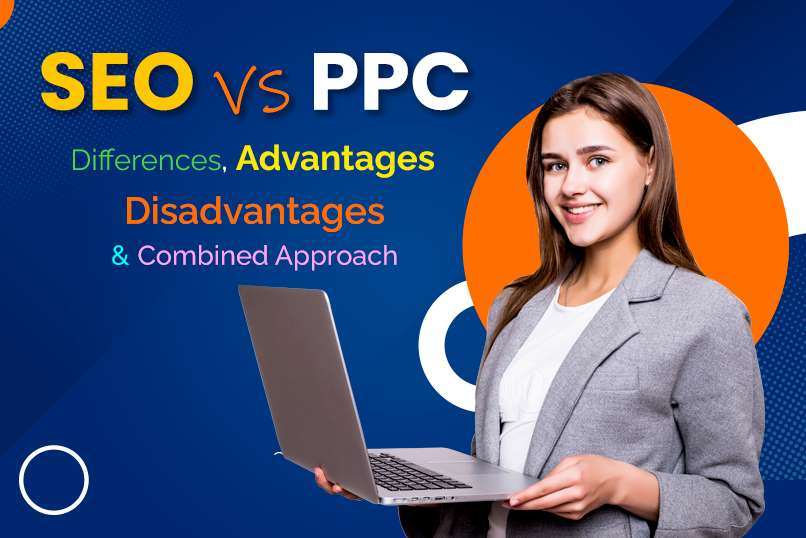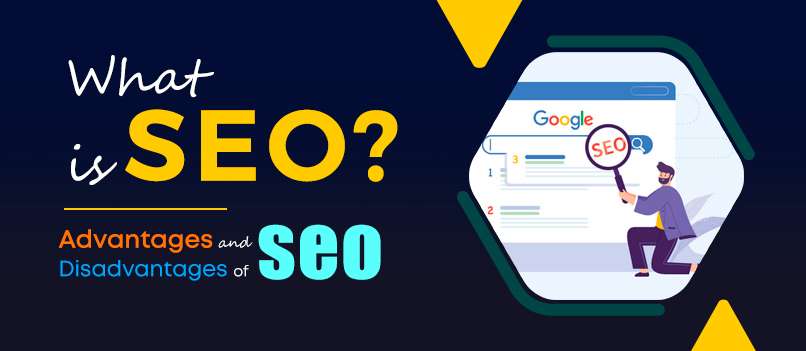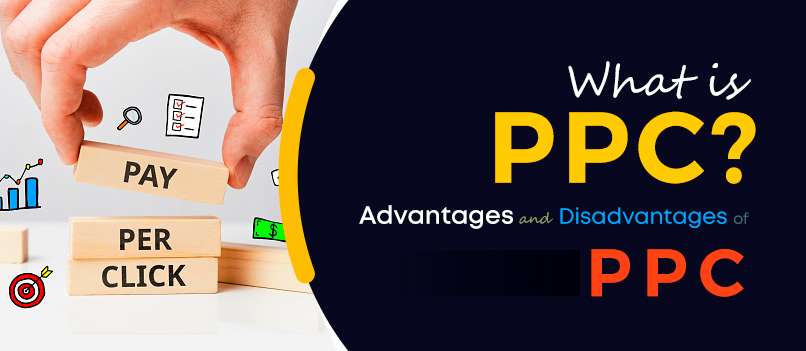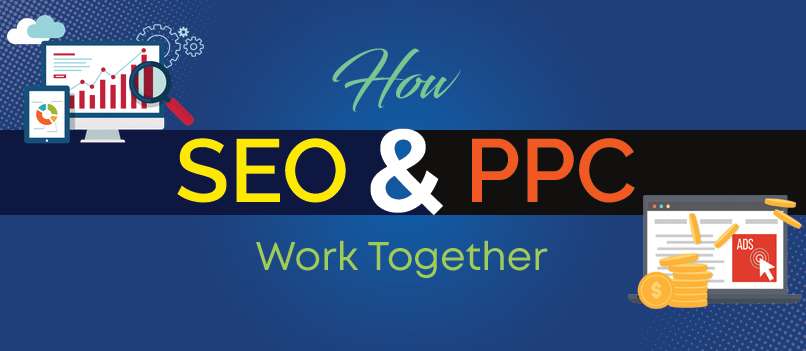
The two most popular forms of online marketing, SEO and PPC, complement each other perfectly. Each channel requires different skill sets and specialized expertise. Together, they take up more real estate on SERPs.
For best results, use both tactics simultaneously. These two marketing methods have several advantages. You'll be able to maximize your brand visibility. Here's how they differ. Read on to discover why SEO is better for your business.
SEO is a natural search engine optimization technique. It takes months to achieve good results. In contrast, PPC involves bidding for top spots in the search engine rankings. In both, you have to optimize your website for Google's best practices.
The more money you spend on SEO, the higher your ranking will be. Paid search ads are not as effective and require more maintenance. However, the results can be seen immediately. So, if you're considering using both techniques, you should consider which one is right for you.
SEO is the most effective method for keyword research. Unlike PPC, it takes more time to generate traffic. As a result, it's best to invest your time in both techniques. While PPC has its advantages, SEO has more benefits.
A good linking profile and high-quality content are essential for SEO. Additionally, long-tail keywords will drive more targeted traffic to your website. A good linking profile will help you get the best results from each.
SEO is a powerful method to boost the website's ranking in organic search results. By using keyword optimization strategies, a business can increase visibility by paying only for keywords that have high search volume.
The difference between SEO and PPC lies in the amount of time and money that is spent on the two different methods. Regardless of the strategy used, the goal of both is the same: to boost the website's ranking.
While SEO requires more time and money than PPC, it's still a great investment and has many benefits.
SEO vs PPC. The two types of online marketing have different advantages and disadvantages. For instance, SEO requires a lot of work on your part and PPC requires more time.
However, the benefits of both are worth it. In this article, we'll explore SEO and the differences between it. We'll look at how they differ and which approach will work best for your business. It's important to note that SEO is more affordable than PPC.
SEO and PPC are complementary methods that both generate traffic. Although SEO campaigns are more effective, PPC can be more costly. Both strategies can help your business grow.
SEO is more effective than PPC in terms of conversion rates. The difference between SEO and PPC is subtle, but the results are worth it. The difference between the two is not always so clear. One technique can be more cost-effective than the other.
When it comes to the two marketing methods, SEO is more expensive and requires more work, but it can bring immediate results. The most notable difference is how you can manipulate the multiples in PPC.
With SEO, you must optimize your web pages to meet Google's standards of best practices. On the other hand, with PPC, you must pay to appear in the top spots, which means your website will need to be crawlable.
In addition, PPC does not depend on algorithms, so you can gradually lower your costs to achieve the same ranking.
The best way to improve your search engine rankings is to integrate SEO and PPC. Using both together can help you boost your results and gain more visibility.
While integrating both will require time and money, the combined revenue will more than offset the drawbacks of each.
Both methods are equally effective for short and long term goals, and they will complement each other. To determine which is better for you, read on.
Both methods have their benefits. SEO, in particular, allows for expanded site links, which is essential for any online business. Unlike PPC, however, it will require a smaller team of experts, with the help of a copywriter and experienced paid, search specialist.
While PPC is not free, it can still be a great way to boost your online presence, since there is no spending involved. While SEO may be cheaper in the long run, you'll need a lot of money to make it work.

SEO stands for search engine optimization and it is the process of improving the website's traffic from search engines. This traffic is both paid and unpaid and is the most effective way to market your site.
This method of marketing can be used by any company that wants to attract more visitors to their website.
By implementing SEO, you can improve the amount of traffic to your site. This type of traffic is the best and most targeted. If you'd like to increase your traffic, this technique is the best option.
SEO is a method of boosting the page's visibility by attracting more potential customers. A website can rank for a variety of keywords, but it's important to optimize the content for both.
There are two kinds of keywords: informational and product. An eCommerce website selling tennis shoes will want to optimize its pages around both types. When a visitor types a keyword into Google, it will display relevant pages that match that keyword.
Google is the most popular search engine, and it organizes the entire web to deliver the most relevant results to users. In other words, the more relevant your page is, the more likely someone is to click on your ad.
Therefore, the primary objective of SEO is to improve the site's visibility on search engines. By improving your website's visibility on the SERPs, you can attract a larger audience of potential customers.
SEO is a powerful marketing tool. It is one of the most effective ways to market your website. It works by ensuring that your content is optimized for search engines. The more content you have on your website, the higher your chances of being ranked high.
The advantage of SEO is that it promotes your site around the clock, which means that your business can reach more people when they are looking for a specific product or service.
Brand Awareness. SEO has many advantages, and it can help boost your website's rankings, including a significant increase in social media followers and email subscribers.
Additionally, it can help your organization become more credible in the eyes of consumers. The process can be integrated with your online advertising or copywriting to increase brand awareness and attract more traffic.
This helps you establish a strong and trusted reputation in the industry. While SEO can be a costly affair, it is one of the most effective ways to drive traffic to a website.
Website traffic. It is a proven strategy to attract more traffic. With SEO, you can target the right kind of visitors and get them to your site.
Cost. Moreover, the process is affordable and easy to implement. As a result, it can boost your revenues. Besides, it can help you generate more profit as well.
So, if you want to achieve your online marketing objectives, you can benefit from the benefits of SEO. If you're looking for a good SEO company, consider hiring a professional to manage your online marketing campaign.
If you're a beginner in this field, it will be easy to understand why you need to optimize your website for search engines.
Targeted Visitors. If you're new to the world of SEO, you might be wondering how it can help your business.
However, the answer is yes. The power of SEO lies in its capacity to expand into new markets. When you optimize your website for search engines, you can attract targeted visitors, which in turn can boost your conversion rate.
If you want to succeed in your business, you'll need a professional to help you in your endeavours. There are several advantages of SEO that you need to know.
Long-term Advantage. SEO is an important marketing strategy for your online business. It is a long-term strategy. Your business will benefit from its results if you are on the first page of search engines.
In addition to this, SEO will also help you gain higher conversion rates and sales. Your website's success will improve as users learn about your products. In this way, it will be more effective. And, as the internet grows, SEO will continue to help your business grow.
Website's Rankings. SEO can be used to boost your website's rankings. It is a powerful marketing tool. With the help of the power of search engines, you can improve your business's exposure to potential clients.
Another benefit is that you can track the performance of your SEO efforts and see how much your audience has been influenced by your content. For example, you can determine which keywords are profitable for your business by using your website's URL.
There are several disadvantages to SEO. The biggest one is that you don't have a lot of time to spend on the process. You need to dedicate time to build up your brand, customer base, and reputation, and there are also unknown algorithms.
Although SEO can boost sales, it doesn't guarantee them immediately. The work will still have an impact, and it can cause you to burn out quickly. However, it does have some advantages, including building brand awareness and reputation.
It is free, but it takes longer to see results. Search engine optimization is not fool-proof. You can make mistakes with it, so it's important to do your research before spending a lot of money.
In addition, SEO isn't free. Some companies use outdated techniques, which can cause your campaign to take longer. You can't test your results, and you won't be able to track your ROI.
Long wait to get the return on investment ROI. While SEO provides a high ROI, you may find the process time-consuming. In addition to requiring a large amount of time, it requires content and backlinks.
While this may seem like a no-brainer, you can still benefit from SEO by balancing it with other digital marketing methods. By following these tips, you'll be able to optimize your website and reap the benefits of SEO.
If you're considering using SEO to promote your business, you'll be better equipped to decide what to do.
It isn't an overnight solution. Despite the numerous benefits of SEO, you should understand that it isn't an overnight solution. You can expect to see some results after a few months, but you shouldn't expect to get overnight success.
In addition, you should be prepared for a lengthy investment. And because it's such a competitive market, it's best to plan your SEO strategy accordingly. If you're not sure whether SEO is for your business, it's probably not worth it.
SEO can be expensive. While SEO can generate a lot of traffic, it can be expensive. Even though the results of SEO aren't permanent, they're long-lasting. Compared to PPC, SEO offers the option to reduce budget monthly and still reap full-scale rewards with visibility.
The cost of SEO isn't as volatile as PPC. It's important to consider your SEO strategy before implementing it. If you're not sure about whether SEO is right for you, contact an expert in your industry.
The costs of SEO can be expensive for smaller businesses. This is why it's a popular choice for entrepreneurs who don't have large marketing budgets. The cost of SEO can be much lower than other forms of internet marketing.
Moreover, it's more sustainable, which means that it will have a long-term effect. For most small businesses, SEO can be the ideal way to jump-start their business.
If you're unsure of whether SEO is right for your business, it's important to discuss both advantages and disadvantages before deciding on a course of action.

Pay-per-click (PPC) is an Internet advertising model where the publisher pays the advertiser each time his or her advertisement is clicked. The method is a cost-effective way to drive traffic to a website.
In return for the advertisement's placement, the publisher is paid each time someone clicks on it. In short, the advertiser pays the publisher every time their ad is clicked. The idea behind this system is to encourage users to click on ads.
In PPC, ads are displayed on websites or pages a user visits. These ads may not seem to be relevant at first, but they may prompt a purchase later. The key is to create relevant ads that appeal to the person who is performing the search.
The best way to do this is through retargeting, which allows advertisers to see and remind users of previous searches and prompt them to purchase. Google is one of the most popular host platforms.
The ultimate goal of PPC advertising is to generate conversions. This means that people who click an ad should perform a specific action. The conversion process is different for every business, but the basic principles remain the same.
For example, when a user enters a keyword related to a product, a link to a landing page is clicked. This action generates a conversion. After clicking a link to a site, the user then needs to complete a form on the site or buy a product.
Get results immediately. There are several benefits of using PPC advertising. First, you get results immediately. With PPC advertising, you can have your ads at the top of search results within a matter of hours.
This is particularly useful for local businesses since a third of online consumers look for a local business each day. Another benefit of PPC is the low risk of trying it. And, because you have to hire a minimal development team to manage your campaign, you can try it with minimal risk.
Brand visibility. PPC advertising helps you educate your prospective customers about your products and services. This type of advertising is more likely to lead to offline sales than to drive brand awareness.
And, if you want to make a sale, PPC is an excellent choice. With a little planning and research, you can make sure your ads are shown to the right people at the right time. Whether you want to focus on lead generation or e-commerce, PPC is an excellent way to get the attention of new customers.
Flexible. PPC is also flexible. If you need to change your message to target a specific audience, you can do so in a matter of minutes. SEO campaigns take weeks or months to produce results, and it's not always possible to do so in a timely fashion.
By contrast, PPC allows you to easily segment your target audience. This makes it much easier to reach potential customers, as well as your competitors. Moreover, your campaign can be launched and optimized in a matter of minutes.
Contextual delivery. Contextual delivery is an additional benefit of PPC advertising. Your ads will activate only when they detect the designated keyword in a search query. You can even tweak your campaigns in between, which is an effective way to save money on clicks.
You can also experiment with different keywords and advertisements for the best results. In addition to this, PPC can also help you make decisions that can affect your marketing efforts. It's also a highly effective tool in integrating SEO into your online strategy.
Profitable for small businesses. PPC is highly profitable for small businesses. However, it's best to be a professional SEO. For example, if you're a small business owner, this is a great way to boost your brand's presence on the web.
For larger companies, you can maximize your ROI with the use of long-tail keywords. For local businesses, this is a major advantage. The ad budget is lower if the business is small.
Get instant traffic. With PPC, you can target people who have never visited your website before. This means you can display ads that relate to the items they purchased, and you can refine your targeting.
With the right keyword and ad campaign, PPC will bring you instant traffic. If you're not a small business owner, it can still be a great way to expand your business. The benefits of PPC are many. If you're a small business, you can start with a low budget.
Costs are very high. The biggest advantage of PPC advertising is that you can target your audience in a very specific way. Because your ads will be displayed only when a user clicks on them, they are more likely to get noticed and generate sales.
The main disadvantage of PPC is that the cost per click is very high, and the advertiser does not know how many people will click on their ads. However, it is also important to understand that you will only pay when someone clicks on your ad.
Skills required. Another disadvantage of PPC advertising is that it can be highly competitive. For a small business, you might not want to spend the money on a pay-per-click advertisement when you're just starting.
For this reason, you'll need to hire a PPC Management Company to help you set up the campaign and monitor results. This will save you time and money, and make sure that it's the most appropriate method for your business.
The number of Clicks is not equal to conversions. Despite the disadvantages of PPC, it is a great tool for achieving your marketing goals. In addition to targeting your audience, PPC advertising is measurable.
When your ads appear in search results, you can measure the amount of traffic they generate and whether they convert to customers. Additionally, you can measure the cost of your campaign and see how much it costs you.
With SEO, you can choose which keywords are relevant to your business.
Cost. As with any form of advertising, PPC requires a specific budget and a certain level of expertise. As with all forms of advertising, you should always ensure that you are aware of all of the disadvantages before investing your money in PPC.
For example, you shouldn't pay for a PPC adjustment because you saw a few ads on search results pages. You should only pay for the ones that are relevant to your products and services.

SEO and PPC are two important elements of an online marketing strategy. However, they cannot be run independently. Both techniques are complementary. When used in tandem, they can achieve better results.
As Google continues to implement changes to its algorithm, they need to work closely with each other. When a company works with multiple teams, communication breaks down often.
To prevent this, the team should communicate with one another regularly. If communication fails, a breakdown may occur.
Both SEO and PPC can boost the performance of your website. While SEO is an essential foundation for your online marketing strategy, PPC can drive traffic to your website. This is especially important in regions where SEO and PPC are not well known.
Moreover, PPC can help you increase visibility and generate leads from an audience that is likely to purchase your product. As such, it's a good idea to combine these two tools.
The results of an SEO campaign can also be used to improve the results of PPC campaigns. In addition, the SEO team can use the insights of their PPC counterparts.
For instance, the SEO team can identify the words that are mismatched or have dual meanings, which can lead to poor conversions. By combining SEO and PPC, a company will be able to refine its image quickly, increase sales and increase conversion rates.